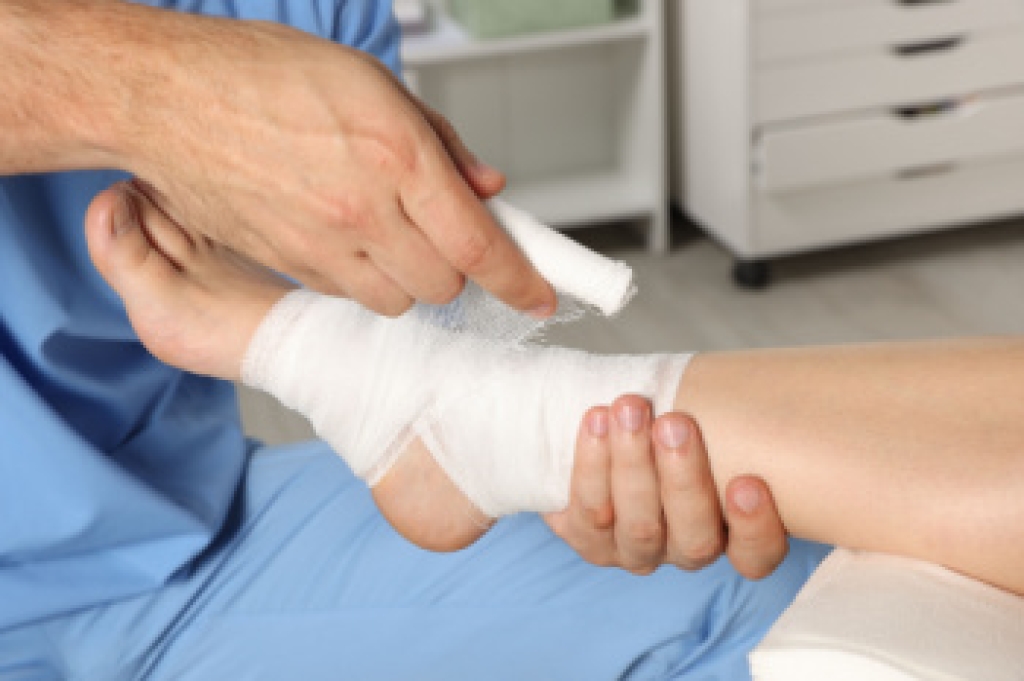
Some foot wounds close within days, but others linger for weeks or even months, becoming a chronic problem. These slow-healing injuries often develop in people with poor circulation, nerve damage, or conditions like diabetes that impair the body’s repair process. Persistent pressure from walking, wearing tight shoes, or foot deformities can keep the skin from closing properly, while unnoticed infections may worsen the damage. Over time, a chronic wound can extend deeper into tissue, raising the risk of serious complications, including bone infection. Because sensation in the feet may be reduced, pain is not always a reliable warning sign. Regular inspection, professional wound care, and addressing the underlying cause are critical for recovery. If a foot sore does not show signs of improvement within a reasonable time, it is suggested that you see a podiatrist for prompt evaluation and treatment.
Wound care is an important part in dealing with diabetes. If you have diabetes and a foot wound or would like more information about wound care for diabetics, consult with Cary Golub, DPM from New York. Our doctor will assess your condition and provide you with quality foot and ankle treatment.
What Is Wound Care?
Wound care is the practice of taking proper care of a wound. This can range from the smallest to the largest of wounds. While everyone can benefit from proper wound care, it is much more important for diabetics. Diabetics often suffer from poor blood circulation which causes wounds to heal much slower than they would in a non-diabetic.
What Is the Importance of Wound Care?
While it may not seem apparent with small ulcers on the foot, for diabetics, any size ulcer can become infected. Diabetics often also suffer from neuropathy, or nerve loss. This means they might not even feel when they have an ulcer on their foot. If the wound becomes severely infected, amputation may be necessary. Therefore, it is of the upmost importance to properly care for any and all foot wounds.
How to Care for Wounds
The best way to care for foot wounds is to prevent them. For diabetics, this means daily inspections of the feet for any signs of abnormalities or ulcers. It is also recommended to see a podiatrist several times a year for a foot inspection. If you do have an ulcer, run the wound under water to clear dirt from the wound; then apply antibiotic ointment to the wound and cover with a bandage. Bandages should be changed daily and keeping pressure off the wound is smart. It is advised to see a podiatrist, who can keep an eye on it.
If you have any questions please contact our offices located in Williston Park, and Long Beach, NY . We offer the newest diagnostic and treatment technologies for all your foot and ankle needs.
